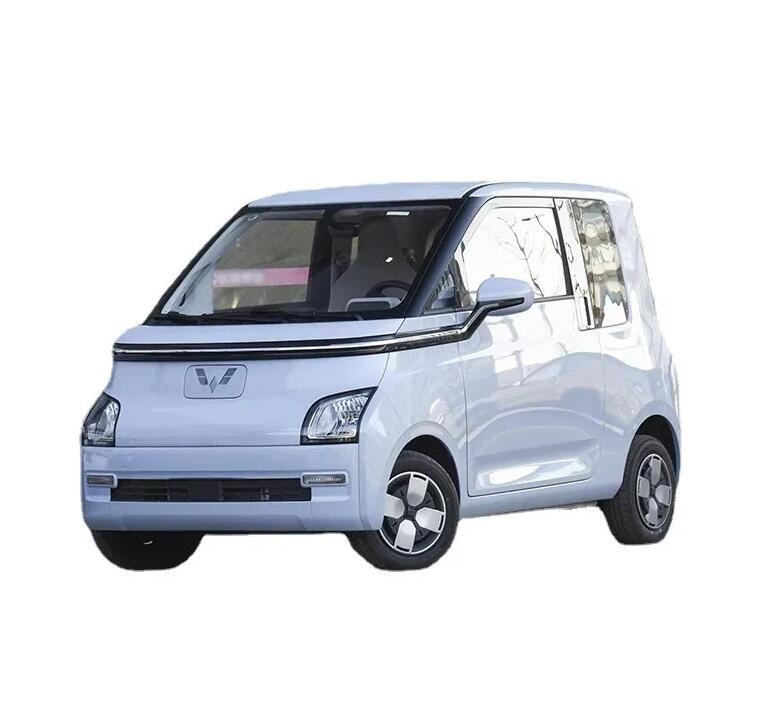Exploring the Different Types of Vehicles for Personal Transportation
2024-08-16
Personal transportation plays a crucial role in our daily lives, offering convenience, independence, and mobility. With various types of vehicles available, each designed to meet specific needs and preferences, choosing the right one can be both exciting and challenging. In this blog, we’ll explore the different types of vehicles commonly used for personal transportation, highlighting their unique features and benefits.
1. Sedans
Sedans are among the most popular types of vehicles for personal transportation. Known for their comfortable ride and spacious interiors, sedans typically feature four doors and a separate trunk. They are ideal for families, commuters, and anyone who values a smooth, comfortable driving experience. Sedans are also fuel-efficient, making them a practical choice for long-distance travel.
Popular examples: Toyota Camry, Honda Accord, and BMW 3 Series.
2. Hatchbacks
Hatchbacks are compact vehicles characterized by their rear door that swings upward to provide access to the cargo area. Unlike sedans, the cargo space in a hatchback is integrated with the passenger area, allowing for more versatility in transporting larger items. Hatchbacks are often preferred by urban drivers for their maneuverability, fuel efficiency, and ease of parking.
Popular examples: Volkswagen Golf, Ford Fiesta, and Hyundai i20.
3. SUVs (Sport Utility Vehicles)
SUVs have grown in popularity due to their elevated driving position, spacious interiors, and versatile capabilities. These vehicles are designed to handle a variety of terrains, making them suitable for both city driving and off-road adventures. Many SUVs offer all-wheel drive (AWD) or four-wheel drive (4WD) options, providing added traction in adverse weather conditions.
Popular examples: Ford Explorer, Toyota Highlander, and Jeep Grand Cherokee.
4. Crossovers
Crossovers, also known as CUVs (Crossover Utility Vehicles), blend features of SUVs and sedans. They offer the higher seating position and versatility of an SUV but are built on a car platform, making them easier to handle and more fuel-efficient. Crossovers are ideal for drivers who want the benefits of an SUV without sacrificing the comfort and drivability of a car.
Popular examples: Honda CR-V, Nissan Rogue, and Subaru Outback.
5. Coupes
Coupes are sleek, two-door vehicles known for their sporty appearance and performance. While they typically have less interior space and a smaller cargo area than sedans, coupes appeal to drivers who prioritize style and a dynamic driving experience. They are often chosen by individuals who enjoy spirited driving on highways or winding roads.
Popular examples: Ford Mustang, Chevrolet Camaro, and Audi A5.
6. Convertibles
Convertibles offer a unique driving experience with the option to lower the roof and enjoy the open air. These vehicles are often based on coupe designs but with a retractable roof, either soft-top or hard-top. Convertibles are perfect for those who enjoy driving in good weather and value the thrill of an open-air ride.
Popular examples: Mazda MX-5 Miata, BMW Z4, and Porsche 911 Cabriolet.
7. Minivans
Minivans are the go-to choice for large families or anyone needing to transport multiple passengers. With spacious interiors, flexible seating arrangements, and ample cargo space, minivans are ideal for road trips, carpools, and everyday family activities. Many modern minivans come equipped with advanced safety features and entertainment systems.
Popular examples: Honda Odyssey, Chrysler Pacifica, and Toyota Sienna.
8. Pickup Trucks
Pickup trucks are versatile vehicles known for their powerful engines and large cargo beds. They are popular among individuals who need to transport heavy loads, tow trailers, or navigate rough terrains. While traditionally associated with work, many pickup trucks now offer comfortable interiors and modern features, making them suitable for everyday driving as well.
Popular examples: Ford F-150, Chevrolet Silverado, and Ram 1500.
Conclusion
The world of personal transportation offers a diverse range of vehicles, each catering to different lifestyles, preferences, and needs. Whether you prioritize comfort, versatility, performance, or style, there is a vehicle type that can meet your requirements. By understanding the unique characteristics of each vehicle type, you can make an informed decision when choosing your next personal transportation solution.



